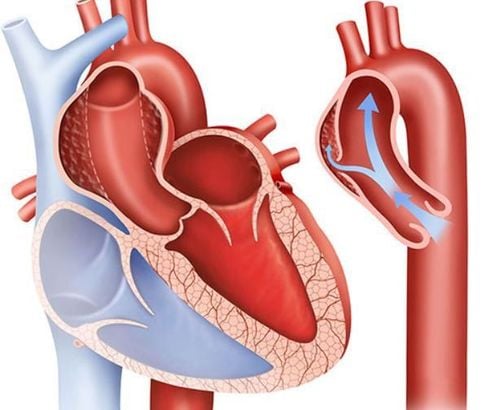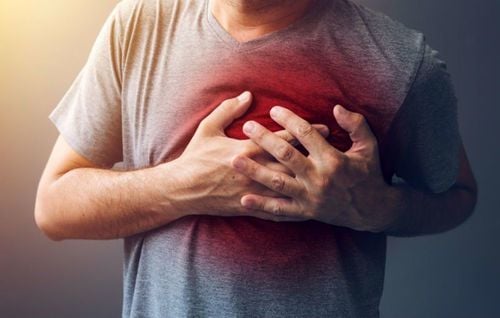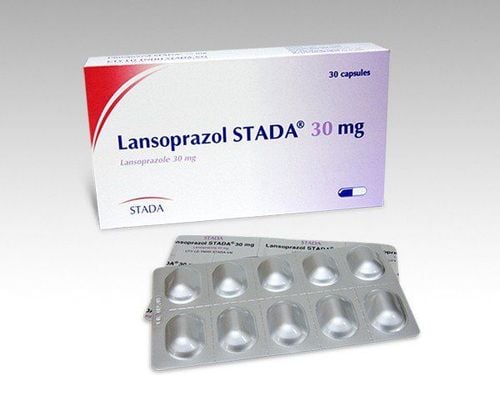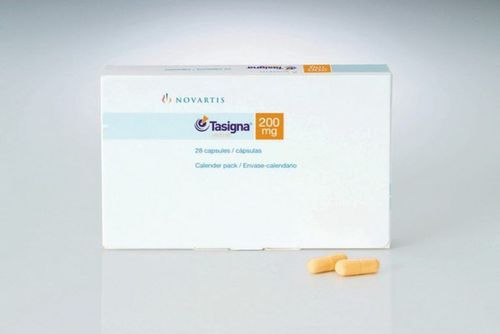This is an automatically translated article.
The article was professionally consulted by Master, Doctor Ngo Dac Thanh Huy - Cardiologist - Department of Medical Examination & Internal Medicine, Vinmec Danang International General HospitalChest pain is a common symptom, even a warning sign of potentially life-threatening conditions such as coronary atherosclerosis, pulmonary embolism, etc. However, many people often ignore it. symptoms and make the condition worse.
1. Characteristics of dangerous chest pain
Chest pain is a very common symptom, but the pain manifests itself differently in both nature and severity from person to person. Chest pain can occur suddenly, angina, and even be a warning symptom of a potentially life-threatening medical condition in the following cases:Patient is over 40 years old and has a One of the risk factors for coronary heart disease such as family history of coronary artery disease, smoking, physical inactivity, obesity, hyperlipidemia or other chronic diseases such as hypertension, diabetes diabetes,... In the family, someone had one of the cardiovascular diseases when they were younger than 55 years old. Feeling of severe chest pain, pain like suffocation, chest pressure, pain spreading to the shoulder, arm and fingertips or jaw. Chest pain accompanied by other symptoms such as fatigue, weakness, vomiting, shortness of breath, dizziness, sweating, chest pain with confusion, loss of self-control, anxiety, chest pain that persists for more than 15 years minutes and the feeling of chest pain is not the same as before. The intensity of the pain increased much compared to the previous chest pain. In addition, chest pain with the following characteristics is less often associated with cardiovascular disease: chest pain that changes with position, transient chest pain, chest pain feeling similar to previous times and known causes not due to cardiovascular.
MORE: Chest pain causes and possible tests
2. Chest pain warns of what disease?
Chest pain is a symptom of many diseases, typically:Angina caused by coronary artery disease: caused by myocardial ischemia caused by coronary stenosis. Patients will feel the heart is compressed, suffocated, chest heaviness, shortness of breath, often occurs with exertion, anger, emotion, ... Pain often spreads to the jaw, shoulder blade, arm and then to the fingers. and may be accompanied by vomiting, sweating, shortness of breath, fatigue, weakness, dizziness,... Angina that increases in frequency or occurs even at rest, is called "pain pain" unstable angina”. Unstable angina puts you at risk for a heart attack. Myocardial infarction: caused by blockage of one or more branches of a coronary artery, causing severe ischemia of the heart muscle. The pain is similar to angina but is more severe and lasts longer, more than 15 minutes. Patients often suffer from severe pain that is unbearable and is accompanied by feelings of fear and panic. Thoracic aortic dissection: the aorta is the body's largest artery, which carries blood from the heart to the body's organs. Aortic dissection is a medical condition in which the aorta tears its endothelium, allowing blood to flow between the intimal and medial layers and stripping the layers of the aortic wall. This is a serious, life-threatening disease with a high risk of sudden death. When acute thoracic aortic dissection occurs, the pain often comes on suddenly and is intense, with a tearing sensation in the posterior sternum region, then spreading to the back and arms.

When seeing signs of chest pain, the patient should see a doctor to find out the cause of this phenomenon, from which to have reasonable intervention. Currently, Cardiovascular Center - Vinmec International General Hospital is one of the leading centers in the country for examination, diagnosis, screening and treatment of cardiovascular diseases. With the convergence of a team of experienced, reputable experts in the field of surgery, internal medicine, interventional cardiac catheterization and the application of advanced techniques in the diagnosis and treatment of diseases. Cardiovascular management, along with a system of modern equipment, on par with the most prestigious hospitals in the world such as: 3 Tesla MRI machine (Siemens), 640 CT machine (Toshiba), other equipment EVIS EXERA III advanced endoscope (Japan Olympiad), Avace high-end anesthesia system, Hybrid operating room according to international standards... The Cardiovascular Center at Vinmec International General Hospital has achieved many successes. work and gain the trust of a large number of patients.
Please dial HOTLINE for more information or register for an appointment HERE. Download MyVinmec app to make appointments faster and to manage your bookings easily.














